Cross Game
Drama, Sports | 50 episodesAnime Review
Cross Game. This show stuck by my list for far too long. Impressive fan scores and the use of baseball as its starting point have always kept me in check. I am a fan of sports in general, but damn, I find it as hard to enjoy watching baseball as I do with golf. Don’t get me wrong, playing baseball is fun, my issue is with watching it.
Anyway. Years passed and so here I am, giving Cross Game a run. Looking at promotional artwork and reading headlines about it would give the impression this may be perhaps more of a romance with some shoujo spice than a sports show about your average shounen dreaming boy. Yet, when given the chance, Cross Game ends up being a somewhat interesting mixture of childish sports show with some charming mature relationships and backdrop. For that reason, my introduction to this show will spoil the events of the first episode, so bear with me.
Kitamura Kou and Wakaba Tsukishima have always been more than common friends. They were born in the same day, same hospital, and lived in the same neighborhood. They have enjoyed life together until a deadly accident during a school trip takes Wakaba away. With only her memory and her last dream left, it falls to Kou to honor them, along with everyone else the charming Wakaba befriended, especially her younger sister Aoba.
You get it?
Notice how I simply didn’t mention baseball in my attempt to contextualize the show. There’s a reason for that: it doesn’t matter. In Cross Game, baseball is just a tool, not the heart of the show. The heart is Wakaba’s memory, her value in forging what Kou and Aoba are during their high-school period. Her memory and her last dream fuel the narrative of this tale, and baseball gets to be the tool used for that. The last dream of the young girl is seeing her lover, Kou, and her lonely friend, Osamu, playing together in a championship match, and thus the real story begins.
A tale for children and adults alike
Cross Game’s presentation is a double-edged knife. It is brimming with identity yet it may look far more childish than it truly is. As mentioned, the heart of the show is shrouded by the memories of a dead girl, the aspirations of a few teenagers, and a somewhat complex and intriguing love polygon. At many points, however, the events kick in fairly simple ways, as if digested and presented to a very young audience and not your everyday shounen fan. It gets more evident with some very stereotypical bad guys and even more with Momiji’s quizzes and musics at the start, yet at many points the drama takes away any childish atmosphere the show tries to create.
And it’s a light romance
Dead characters are fairly intriguing in any tale. It is hard to put the right amount of drama, remembrance scenes, and keep the show going while focusing on the living. If there’s a point where Cross Game gets a deserved praise, well, here it is. Wakaba is not present right from the first episodes onward, yet you know she is always there. With little context many scenes featuring Kou, Aoba, and Osamu can be filled with emotion and tension because you know Wakaba’s memories are behind them. The show also smartly steps away in trying to make romance evident from the start, slowly picking Aoba and Kou together, putting some new players into the polygon, and never getting into annoying territories of blushing and stupid tsundere behavior.
The cast
Well, Aoba is a tomboy with a dose of tsundere, yes, but she gets to be more complex than that. Kou also gets a big thumbs up because he is far from being the annoying lead of shounen sports, instead being a dedicated guy that is just a bit relaxed with his free time. Joining the duo and Wakaba’s memory are a bunch of schoolmates, each based on somewhat simple tropes yet with many getting a good deal of development on their own, smartly spread through many episodes instead of dedicated ones. As you are slowly presented to these guys they get more and more charming, adding enough spice to our romantic leads.
A childish take on emotions though
Bad guys and good guys. Sadly, as if trying to get its way into a very young audience, Cross Game keeps its cast crystal clear in who is the bad guy and who is not. There is no grey area here. No character manages to mix being mean and being nice. Evil coaches, greedy directors, snob girls, and many others make it sure you know who needs to be punished, while the rest of the cast is incredibly okay with each other and rarely even get into real fights and conflicts among themselves. It’s as if the good guys had no place in their hearts to any degree of jealousy, anger, mistrust, and so on. The only rare exceptions to this rule are those tasked with the comical relief role, which simply takes away any power those darker feelings would have on the rest of the cast.
And baseball
Baseball is that type of sport that can be a lot of fun playing yet can get kinda of boring when watching. Things happen just rarely and for most of the game you see the pitcher throwing balls and batters hitting the wind. Cross Game knows that and for that reason it rarely gets into the core of the game. Besides a few major games that get some headlines, most other matches are simply skipped. For a show running through fifty episodes, it’s interesting when not even six matches are presented in a major way.
Unlike most of your shounen sports shows, the opponents are not as overly trash-talked as well, which keep us locked into what truly matters in between major tournaments: how the hell Kou and Aoba will overcome Wakaba’s death and move on with their feelings. Yeah, it’s good to see a sports show that knows how not to waste time.
Okay. I can mention Cross Game’s critic scores may be a bit inflated, but this is a damn fine show indeed. It’s intriguing how such a show can be so childish yet so powerfully emotional at the same time. This is a light, fluid experience that never gets stuck with annoying parts and always manages to keep us in check, waiting to see how the memory of a dead girl will influence her lover and sister in the near future.
There are many moments where the show gets Wakaba’s memory just right, making you remember her as someone really important even if she was just shown for a few minutes early on. These moments may make your eyes teary or not, but they work on making her important and reminding you that this is NOT a sports show, instead a slice-of-life where people happen to play baseball. If the sport of choice was basketball, football, tennis, or anything else, it would rarely affect the overall experience. You would still get Wakaba, her dream, Aoba and Kou’s relationship, and strangers entering their high-school life.
Yeah. This is fine stuff.
Summary
-
Production - 7/107/10
-
Direction - 9/109/10
-
Concept - 8/108/10
-
Character - 8/108/10
-
Enjoyment - 7/107/10

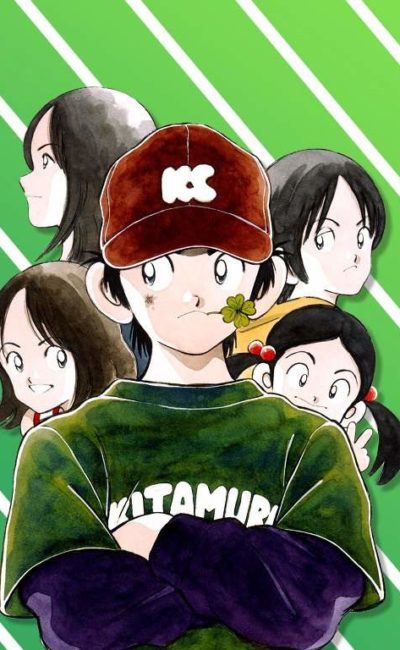
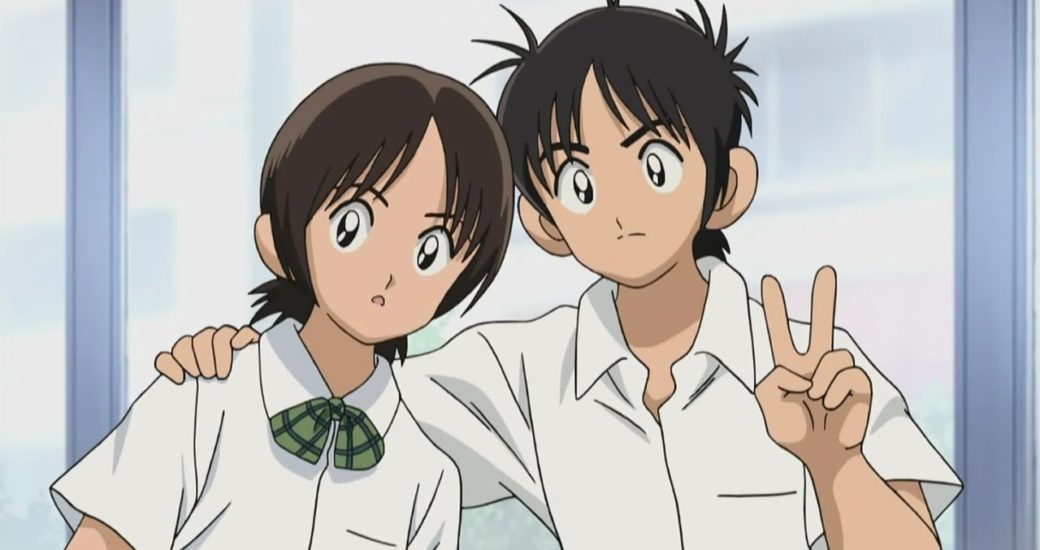

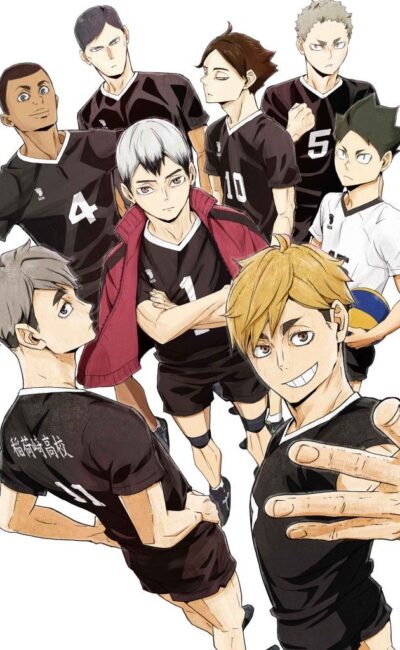
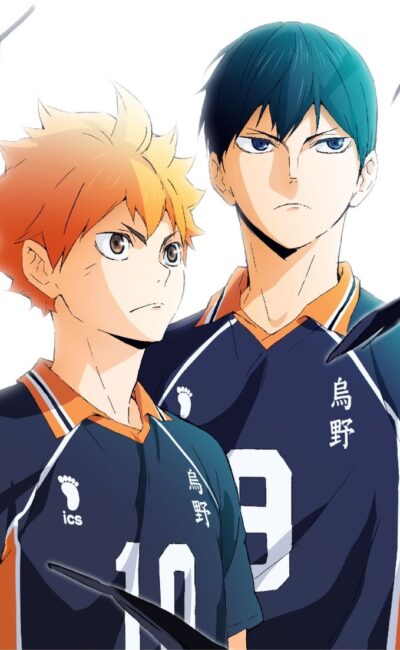
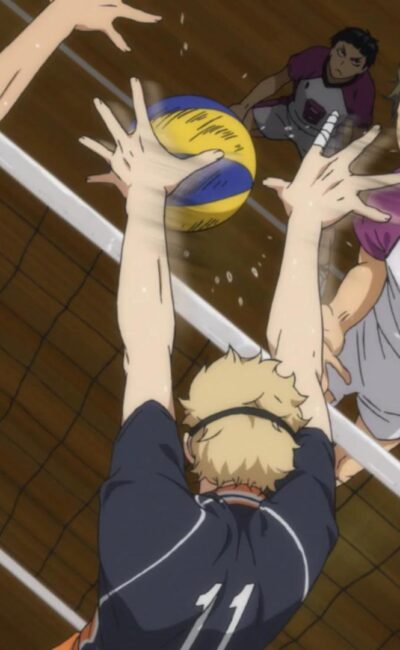
Comments ( 0 )